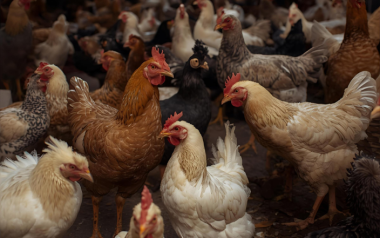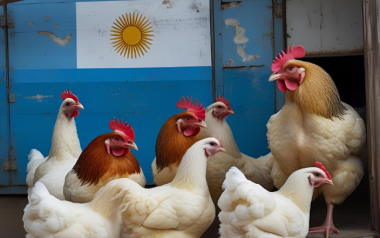The Bureau of Animal Industry (BAI) reported that as of January 31, 1.66 million kilograms of poultry products represented on average 10% of the 16.9 million kilograms of chicken imported from the United Kingdom. Also, they reported that 1.23 million kg of deboned chicken meat was also imported at that time.
12 Mar 2021
Poultry meat prices could increase in the Philippines due to importation bans
In Manila, Philippines, on March 5 the Agricultural Secretary William Dar from the Department of Agriculture signed a memorandum order […]
In Manila, Philippines, on March 5 the Agricultural Secretary William Dar from the Department of Agriculture signed a memorandum order to prohibit the importation of any kinds of birds (either domestic or wild), together with poultry meat, one-day-old chicks, eggs, and semen from the United Kingdom. This ban order is due to the avian flu H5N8 outbreaks, which is considered the highly pathogenic avian influenza (HPAI).
Meat processors said that the high poultry production costs from other countries and the ban on poultry meat imported from the UK would lead to an increase in poultry meat processed prices since there is a tighter supply of mechanically deboned meat (MDM).
Moreover, “the temporary ban on the UK will worsen the dire situation we are in now. The UK, together with the Netherlands and Germany which have also been banned for several months now, comprise about 60 percent of our MDM chicken supply. This is a major source of animal protein for processors,” said Jerome Ong, vice president of the Philippine Association of Meat Processors Inc.
He also added that “Supply has been severely affected and prices from other countries have increased by more than 100 percent. Our inventories are running out and if supply does not stabilize, the prices of processed meat such as canned meat loaf, sausage, hotdogs, siomai, etc. will increase by more than 20 to 25 percent.”
In general, Ong mentioned that prices for all meats such as fish, pork, beef, and poultry have increased, leading to a great impact on many consumers who cannot buy it because the country is just beginning to recover from the pandemic and the inflation rates that were up to 4.7 in February.
Source: The Philippine Star.







































